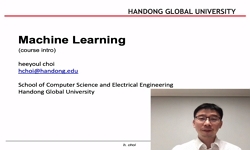This paper proposed to elaborate a navigation system for an autonomous mobile robot, able to deviate from obstacles, from the study and application of Fuzzy Logic. With the algorithm in operation, it was verified that the Fuzzy logic offers a smoother...
http://chineseinput.net/에서 pinyin(병음)방식으로 중국어를 변환할 수 있습니다.
변환된 중국어를 복사하여 사용하시면 됩니다.
- 中文 을 입력하시려면 zhongwen을 입력하시고 space를누르시면됩니다.
- 北京 을 입력하시려면 beijing을 입력하시고 space를 누르시면 됩니다.



Application of the Fuzzy Logic for the Development of Automnomous Robot with Obstacles Deviation
한글로보기https://www.riss.kr/link?id=A105325258
-
저자
Lucas Alves Dias (Faculdade de Tecnologia Termomecanica) ; Roger William de Oliveira Silva (Faculdade de Tecnologia Termomecanica) ; Paulo César da Silva Emanuel (Faculdade de Tecnologia Termomecanica) ; André Ferrus Filho (Faculdade de Tecnologia Termomecanica) ; Rodrigo Teixeira Bento (Faculdade de Tecnologia Termomecanica)

- 발행기관
- 학술지명
- 권호사항
-
발행연도
2018
-
작성언어
English
- 주제어
-
등재정보
KCI등재,SCIE,SCOPUS
-
자료형태
학술저널
-
수록면
823-833(11쪽)
-
KCI 피인용횟수
3
- 제공처
- 소장기관
-
0
상세조회 -
0
다운로드
부가정보
다국어 초록 (Multilingual Abstract)
This paper proposed to elaborate a navigation system for an autonomous mobile robot, able to deviate from obstacles, from the study and application of Fuzzy Logic. With the algorithm in operation, it was verified that the Fuzzy logic offers a smoother transition in the movements. In order to validate the efficiency of the navigation system created, simulations were performed with the robot according to the rules inserted in the Fuzzy controller, where the input values of the sensors and the output values in the PWM of the board were analyzed. The results obtained were consistent with the responses given by the simulation in MatLab, following the same trend of behavior. With the realization of this project, it was concluded that the Fuzzy methodology presents a solution to the problems of navigation in real environments, allowing to implement a controller for an autonomous robot that can deflect obstacles avoiding their collision. One of the problems encountered is the angle of actuation of the ultrasonic sensors. This type of sensor works with an angle of actuation of 15◦, which leaves the robot with a low vision area in the use of three sensors. As a result, there may be no reading on objects entering zones without detection, leading to a collision with these obstacles. The responses were satisfactory, following the same trend behavior of the simulations of the Fuzzy controller.
참고문헌 (Reference)
1 F. Madeiro, "Uma alternativa de aceleracao do algoritmo fuzzy k-means aplicado a quantizacao vetorial" 13 (13): 193-206, 2012
2 R. A. L. Rabelo, "Uma abordagem baseada em sistemas de inferencia fuzzy Takagi-Sugeno aplicada ao planejamento da operacao de sistemas hidrotermicos de geracao" 22 (22): 49-64, 2011
3 E. Cox, "The Fuzzy Systems Handbook: A Practitioner's Guide to Building, Using, and Maintaining Fuzzy Systems" AP Professional 1994
4 D. F. Wolf, "Robotica movel inteligente: da simulacao as aplicacoes no mundo real" 279-330, 2009
5 G. D. M. Simonsen, "Resgate Utilizando Robo Real" 2011
6 G. Faria, "Navegacao de robos moveis utilizando aprendizado por reforco e logica fuzzy" 13 (13): 219-230, 2002
7 F. A. C. Gomide, "Modelagem, controle, sistemas e logica Fuzzy" 4 (4): 97-115, 1994
8 S. Sandri, "Logica Nebulosa, Escola de RN, Julho/1999, ITA - Sao Jose dos Campos/SP"
9 R. A. Silva, "Inteligencia artificial aplicada a ambientes de engenharia de software: uma visao geral" 4 (4): 27-37, 2005
10 C. L. Nascimento Jr, "Inteligencia Artificial em Controle e Automacao" 2004
1 F. Madeiro, "Uma alternativa de aceleracao do algoritmo fuzzy k-means aplicado a quantizacao vetorial" 13 (13): 193-206, 2012
2 R. A. L. Rabelo, "Uma abordagem baseada em sistemas de inferencia fuzzy Takagi-Sugeno aplicada ao planejamento da operacao de sistemas hidrotermicos de geracao" 22 (22): 49-64, 2011
3 E. Cox, "The Fuzzy Systems Handbook: A Practitioner's Guide to Building, Using, and Maintaining Fuzzy Systems" AP Professional 1994
4 D. F. Wolf, "Robotica movel inteligente: da simulacao as aplicacoes no mundo real" 279-330, 2009
5 G. D. M. Simonsen, "Resgate Utilizando Robo Real" 2011
6 G. Faria, "Navegacao de robos moveis utilizando aprendizado por reforco e logica fuzzy" 13 (13): 219-230, 2002
7 F. A. C. Gomide, "Modelagem, controle, sistemas e logica Fuzzy" 4 (4): 97-115, 1994
8 S. Sandri, "Logica Nebulosa, Escola de RN, Julho/1999, ITA - Sao Jose dos Campos/SP"
9 R. A. Silva, "Inteligencia artificial aplicada a ambientes de engenharia de software: uma visao geral" 4 (4): 27-37, 2005
10 C. L. Nascimento Jr, "Inteligencia Artificial em Controle e Automacao" 2004
11 B. Coppin, "Inteligencia Artificial" 2010
12 J. G. Ganascia, "Inteligencia Artificial" Ed. Atica 1993
13 Chuandong Li, "Impulsive Synchronization for TS Fuzzy Model of Memristor-based Chaotic Systems with Parameter Mismatches" 제어·로봇·시스템학회 14 (14): 854-864, 2016
14 L. Mesquita, "Implementacao de processador digital baseado em logica fuzzy usando um FPGA" 4 : 1-12, 2012
15 S. Yang, "Exponential stabilization and synchronization for fuzzy model of Memristive neural networks by periodically intermittent control" 75 : 162-172, 2016
16 F. H. T. Vieira, "Esquema de controle adaptativo de trafego de redes baseado em um algoritmo de predicao Fuzzy" 19 (19): 281-301, 2008
17 S. T. Monteiro, "Desempenho de algoritmos de aprendizagem por reforco sob condicoes de ambiguidade sensorial em robotica movel" 15 (15): 320-338, 2004
18 T. C. Callai, "Controle nebuloso adaptativo por modelo de referencia: projeto e aplicacao em sistemas nao-Lineares" 18 (18): 479-489, 2007
19 P. T. Megda, "Controle de trajetorias para robos moveis utilizando logica fuzzy" 12 : 1-8, 2010
20 A. Durresi, "Congestion control using adaptive multilevel early congestion notification" 5 (5): 2007
21 P. H. Winston, "Artificial Intelligence, 3rd ed." Addison-Wesley 1992
22 ARDUINO, "Arduino MEGA 2560"
23 E. H. Mandani, "Application of fuzzy logic to approximate reasoning using linguistic synthesis" 26 (26): 1182-1191, 1977
24 C. F. M. Almeida, "Aplicacao de algoritmos geneticos e teoria dos conjuntos fuzzy no dimensionamento de sistemas de monitoracao para redes de transmissao de energia eletrica" 21 (21): 363-378, 2010
25 M. B. de Carvalho, "Algoritmo hibrido para resolver o problema de escalonamento job shop com incertezas" 14 : 43-55, 2013
26 B. Chen, "Adaptive fuzzy output tracking control of MIMO nonlinear uncertain systems" 15 (15): 287-300, 2007
27 R. Q. Hu, "A predictive self-tuning fuzzylogic feedback rate controller" 8 (8): 697-709, 2000
28 M. I. Corradini, "A discrete adaptive variable-structure controller for MIMO systems, and its application to an underwater ROV" 5 (5): 349-359, 1997
29 E. Charniak, "A Bayesian Model of Plan Recognition" Addison-Wesley 1985
동일학술지(권/호) 다른 논문
-
- 제어·로봇·시스템학회
- Zhong-Yi Chu
- 2018
- KCI등재,SCIE,SCOPUS
-
Control for Underactuated Systems Using Sliding Mode Observer
- 제어·로봇·시스템학회
- Djamila Zehar
- 2018
- KCI등재,SCIE,SCOPUS
-
IMC-based Design for Teleoperation Systems with Time Delays
- 제어·로봇·시스템학회
- Yuling Li
- 2018
- KCI등재,SCIE,SCOPUS
-
A Two-stage State Transition Algorithm for Constrained Engineering Optimization Problems
- 제어·로봇·시스템학회
- Jie Han
- 2018
- KCI등재,SCIE,SCOPUS
분석정보
인용정보 인용지수 설명보기
학술지 이력
| 연월일 | 이력구분 | 이력상세 | 등재구분 |
|---|---|---|---|
| 2023 | 평가예정 | 해외DB학술지평가 신청대상 (해외등재 학술지 평가) | |
| 2020-01-01 | 평가 | 등재학술지 유지 (해외등재 학술지 평가) |  |
| 2010-01-01 | 평가 | 등재학술지 유지 (등재유지) |  |
| 2009-12-29 | 학회명변경 | 한글명 : 제어ㆍ로봇ㆍ시스템학회 -> 제어·로봇·시스템학회 |  |
| 2008-01-01 | 평가 | 등재학술지 유지 (등재유지) |  |
| 2007-10-29 | 학회명변경 | 한글명 : 제어ㆍ자동화ㆍ시스템공학회 -> 제어ㆍ로봇ㆍ시스템학회영문명 : The Institute Of Control, Automation, And Systems Engineers, Korea -> Institute of Control, Robotics and Systems |  |
| 2005-01-01 | 평가 | 등재학술지 선정 (등재후보2차) |  |
| 2004-01-01 | 평가 | 등재후보 1차 PASS (등재후보1차) |  |
| 2002-07-01 | 평가 | 등재후보학술지 선정 (신규평가) |  |
학술지 인용정보
| 기준연도 | WOS-KCI 통합IF(2년) | KCIF(2년) | KCIF(3년) |
|---|---|---|---|
| 2016 | 1.35 | 0.6 | 1.07 |
| KCIF(4년) | KCIF(5년) | 중심성지수(3년) | 즉시성지수 |
| 0.88 | 0.73 | 0.388 | 0.04 |




 KCI
KCI







